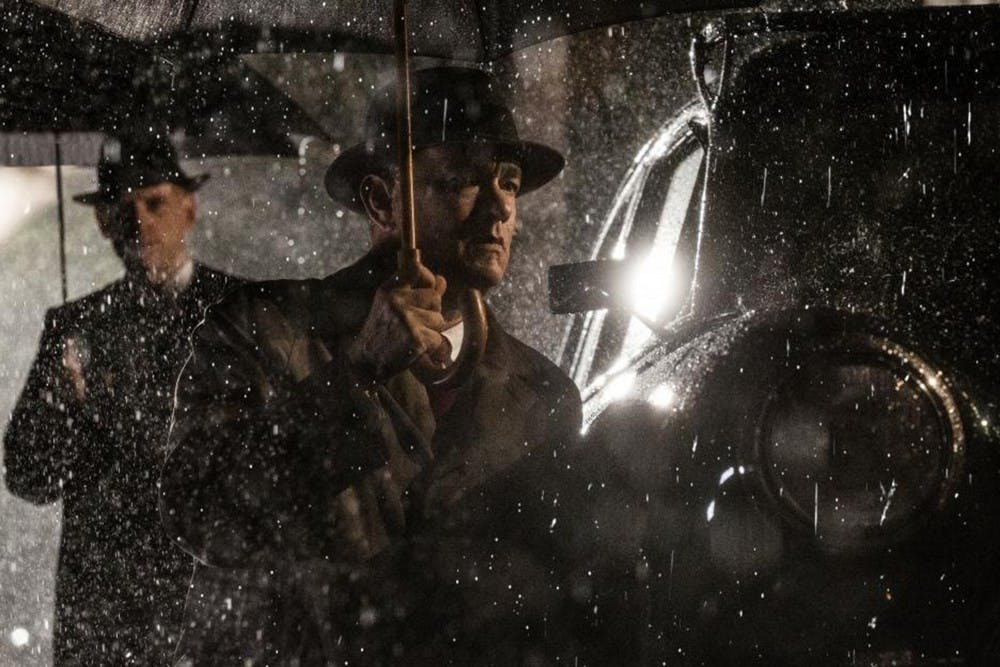Steven Spielberg hits another home run with his sentimental, smart and powerful “Bridge of Spies,” a political drama that defies partisanship and the American values of individualism and national integrity. "Bridge of Spies" comes three years after Spielberg's last movie, "Lincoln," but is well worth the wait.
Like all of Spielberg's films, there is prestige to “Bridge,” but an audacious script by the Coen brothers and British screenwriter Matt Charman adds a unique flair. “Bridge of Spies” isn’t driven by action, large set pieces or special effects, but rests on the laurels of brilliant performances by Tom Hanks and Mark Rylance, great production design and the thick tension of the Cold War.
During the start of the Cold War, James Donovan (Tom Hanks), a Brooklyn-based insurance lawyer is faced with the challenge of defending Soviet spy Rudolf Abel (Mark Rylance). Initially, Donovan is approached with the intent of saving face and competently defending Abel. But, as a relationship forms between the two and wrongdoings are exposed, Donovan decides that his own moral integrities and duties as a lawyer supersede competence, and he invests fully in the case.
Donovan and his family's well-being is tried due to the communist paranoia during the time. However, when a U.S. pilot is captured by the Soviets, America turns to Donovan to negotiate the dealings.
Luckily, “Bridge of Spies” was handled by Spielberg, the Coen brothers and Hanks. It's essentially a little more than two hours of Donovan negotiating with Americans, Soviets and East Germans. Spielberg’s timing and attention to detail elevate it into something really fascinating and the script is dramatic and exciting without showboating.
Furthermore, the cinematography, done by longtime Spielberg collaborator Janusz Kamiński, is gorgeous and natural, while the production design is tasteful and restrained, taking advantage of the aesthetic of the period.
Obviously, Tom Hanks is the star of “Bridge of Spies” and the whole film circles around his performance, but Mark Rylance’s supporting turn is excellent and surprisingly fun. Rylance masters the stoicism and sternness of Abel while delivering perfected dry humor.
Hanks is excellent and expressive without having to divulge into melodrama. The performance is understated and full of complexities that lesser hands could have lost. Hanks has played similar characters before, like the honorable Captain Richard Phillips, but Donovan is grounded by his duty to America and his integrity. Despite how recognizable Hanks is, he loses himself in the character and his performance is on par with his previous Spielberg collaborations.
“Bridge of Spies” is quite narrative-heavy as Donovan is forced to strategically seesaw in the negotiations. He balances a submissive and dominant role in the arguments, which creates a compelling dynamic.
It is at its best when all the narrative and performances are restrained and the drama is understated. Once the story shifts abroad, everyone is constantly testing the U.S. through its surrogate, Donovan.
These relationships are much more complex than the uneven attempts at humor that usually fall flat. Fortunately, “Bridge of Spies” main exploration is what it means to be an American, and Spielberg’s approach is professional and mature.
The most powerful moment, anticipated by two nearly-perfect hours, is approached with such softness and mystique that it may be one of late-career Spielberg's best scenes. Ultimately, Spielberg’s affinity to ultra-conclusive, overly sentimental tag endings is the weakest part of “Bridge of Spies.”
Unfortunately, the last 20 minutes show signs of Spielberg’s overly tender works, like “War Horse,” by driving home the already present American themes in a nauseatingly manipulative way.
Overall, the fact that the film doesn't fall into the pitfalls of other politically-charged dramas sooner is a huge accomplishment and Spielberg proves once again he is a strong director in all genres.
Related Links:
'Steve Jobs' is stylish and innovative, but Sorkin needs a software upgrade
Reach the reporter at tanner.stechnij@asu.edu or follow @tannerstechnij on Twitter.
Like The State Press on Facebook and follow @statepress on Twitter.




